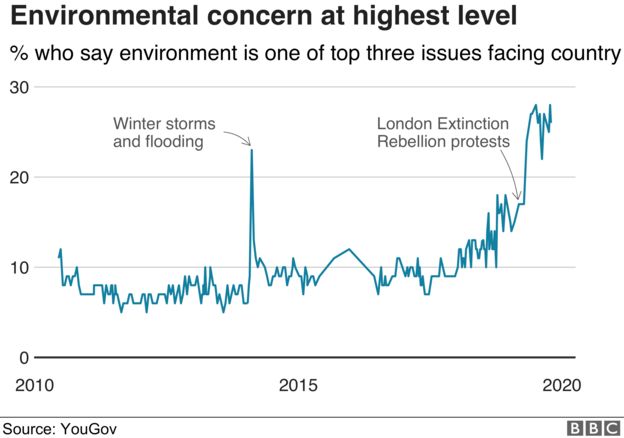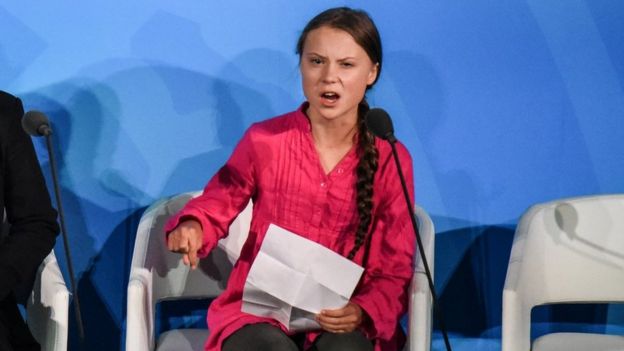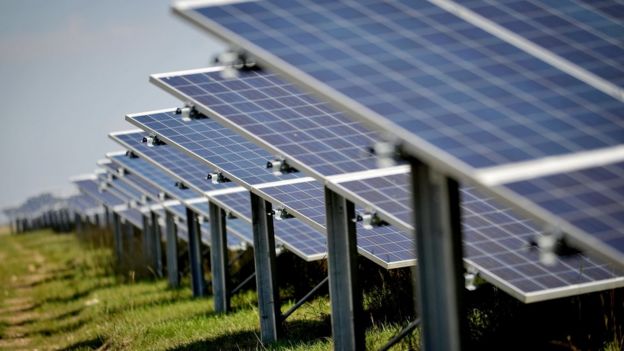Could this be the UK’s first general election where climate change plays a defining role?
Published on the BBC: https://www.bbc.co.uk/news/science-environment-50307304
Usually it’s issues such as the economy or crime or health that dominate the campaigns. And this time Brexit is bound to be the most acute question facing politicians and voters.
But some recent polling has revealed a potentially significant shift elevating the environment to one of the top priorities.
What do the opinion polls show?
The polling company YouGov has tracked views on the environment for nearly a decade and for most of that time the subject ranked pretty low.
There was a spike in interest following the violent storms of the winter of 2013-14 in which many areas were hit by devastating floods but that was an exception, and things slipped back to “normal” soon afterwards.
But this year something has shifted dramatically, according to YouGov.
Chris Curtis, one of its researchers, says that in the most recent poll 27% of voters cited the environment as one of three top issues – behind Brexit and health. That puts it on par with crime and the economy.

And he says this is particularly striking among younger voters – 45% of 18-24 year olds put it as their second biggest concern after Brexit.
His conclusion? “I think over this election campaign politicians are going to have to start discussing the issue of the environment if they want to win over the support of those younger voters.”
What’s behind this shift?
The YouGov polling points to very clearly to the protests by Extinction Rebellion last April as being one key factor.
Resented by some, inspiring to many, the movement has at the very least got people talking.
Around the same time, the school strikes led by the Swedish 16-year-old Greta Thunberg were catching the imagination of thousands of British children – and maybe some of their parents too.

The past summer saw record-breaking heatwaves and scientists making it clear that rising temperatures are not a problem for the distant future, but something that’s threatening now.
And on top of it all, the revered tones of Sir David Attenborough have been heard by millions, including right now with his new series ‘Seven Worlds, One Planet’, warning that the threat of climate change is real and dangerous.
So are the parties listening?
Well the two biggest parties are trading blows over which of them offers the most credible green policies.
Last Saturday the Conservatives announced a halt to fracking, the controversial process of extracting gas from shale rock. Labour derided the timing as opportunistic and more of a pause than a total ban.
The very next day, Labour came out with a ‘Warm Homes’ plan to insulate the country’s households – nearly 27m of them – and help with solar panels and heat pumps. The Tories dismissed the scheme’s £250bn bill as unaffordable and unrealistic.
And now, along with the Liberal Democrats, SNP and Green Party, Labour are calling for a live TV debate on climate change, clearly hoping to highlight what they see as government failings.
For their part, ministers point to the fact that the UK, on their watch, is the first major industrialised economy to commit to decarbonisation.
So what actually needs to be done?
As things stand, there’s a national goal of making sure the UK no longer adds to the problem of global climate change after 2050.
In practice that means reducing carbon emissions to what is called “net zero” by that time – which basically means any greenhouse gases still being released are absorbed or compensated for in some way.
That was the target proposed by the Committee on Climate Change, the government’s climate advisers, but opposition parties want to move much faster.

There are plenty of different scenarios for achieving net zero but they all involve radical changes and huge investments in the next decade or so. Among the options is a trebling of the UK’s current solar power and of the output of its offshore wind, switching away from using gas to heat our homes, together with massive improvements in the energy efficiency of all our buildings and greening all our transport.
What’s at stake?
For Chris Stark, chief executive of the Committee on Climate Change, “this election really is the climate election”.
He told BBC News: “There probably isn’t a bigger challenge – when we think about the things that need to be done to get to that goal of net zero emissions, it’s absolutely enormous.
“It involves things in every sector of the economy and of course we need government policies in every sector of the economy to deliver that.
“And we need to see the manifestos that come forth in the next election that those policy commitments are there – it’s essential that they are.”
And for whoever ends up in charge next month, there’s another incentive to think about: the UK is due to host a crucial climate summit, known as COP26, in Glasgow in a year’s time.
The country’s green credentials will be under global scrutiny like never before.
Published on the BBC: https://www.bbc.co.uk/news/science-environment-50307304

